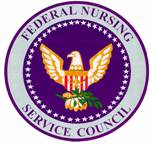 The Federal Nursing Service Council (FNSC) was organized in 1943 during the height of World War II to provide a means for easy exchange of information, provide mutual assistance in the consideration of nursing issues, and formulate recommendations regarding federal nursing.1 Originally composed of the Federal Nursing Chiefs, the Chief Nurse of the American Red Cross quickly joined the council. In 1996, FNSC was expanded to include the Reserve and Guard components of the military nursing services and in 2010 the Uniformed Services University of the Health Sciences Graduate School of Nursing became part of the Council.
The Federal Nursing Service Council (FNSC) was organized in 1943 during the height of World War II to provide a means for easy exchange of information, provide mutual assistance in the consideration of nursing issues, and formulate recommendations regarding federal nursing.1 Originally composed of the Federal Nursing Chiefs, the Chief Nurse of the American Red Cross quickly joined the council. In 1996, FNSC was expanded to include the Reserve and Guard components of the military nursing services and in 2010 the Uniformed Services University of the Health Sciences Graduate School of Nursing became part of the Council.
Today, the FNSC is a united federal nursing leadership team poised to address tomorrow’s health challenges today. The Council seeks to enhance and strengthen its constituencies; to collaborate and enrich the environment for Federal nurses and those entrusted to their care; and to advance and explore professional issues and leadership. The Council membership consists of U.S. Army, Navy, Air Force, including Guard and Reserve, Public Health Corps, American Red Cross, Department of Veteran’s Affairs, and the Uniformed Services University of the Health Sciences Graduate School of Nursing.
The Council represents over 125,000 nurses with a beneficiary population exceeding 8.5 million. Military nursing, in particular, is a unique segment of public health and as such is sometimes confronted with issues that are not prevalent in the civilian sector. FNSC is a forum to address nursing issues which are uniquely tied to caring for the military member and veterans and nursing practice in the context of armed conflict. The inter-service and inter-agency collaboration provided by FNSC allows for the sharing of best practices and for consensus building to promulgate policies of interest to our entire membership.
1 Vreeland, Ellwynne M., (1950). Fifty Years of Nursing in the Federal Government Nursing Services, American Journal of Nursing, Vol. 50, No. 10, pp 626-631.
MISSION: Bring together Federal Nursing’s collective leadership and expertise to advance and strengthen professional nursing and enhance partnerships among federal agencies and the American Red Cross.
VISION: United to Address Tomorrow’s Health Care Challenges Today.
FNSC Mission and Vision
STRATEGIC PRINCIPLES & VALUES
The FNSC is committed to:
- Recognize the impact of ethical practice has on patient safety and the quality of care.
- Influence health delivery systems to eliminate preventable harm.
- Use and disseminate evidence-based practice principles to create more effective, efficient and safer healthcare environments.
- Optimize healthcare outcomes through interprofessional practice.
- Guide and disseminating policy through the translation of education and research.
- Ensure a collaborative and integrated nursing and other health professional response to advance quality health and wellness through partnerships.
- Influence the nursing leadership continuum.
Values: Excellence, Integrity, Collegiality, Leadership, Courage, Innovation, Stewardship
2017-2020 STRATEGIC GOALS:
-
Strengthen nursing leadership to drive positive change in health and health policy.
-
Improve access, quality, and safety to health and healthcare.
-
Enhance partnerships to support readiness, skill sustainment, and inter/intra professional collaboration.
The Council includes the principal executives and deputies of the:
AIR Force | AIR Force Reserve | AIR National Guard | American Red Cross | Army | Army Reserve
Army National Guard | Department of Veterans Affairs | Navy | Navy Reserve
Uniformed Services University | US Public Health Service
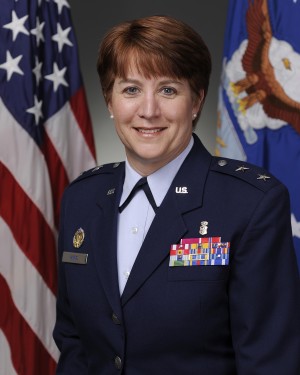 |
Maj Gen Dorothy A. Hogg
AF Deputy Surgeon General
Chief, Air Force Nurse Corps
Dorothy.A.Hogg.mil@mail.mil
Deputy
Col Camella Nulty
(703) 681-7557
|
Office of the Air Force Surgeon General
7700 Arlington Blvd Suite 5152
Falls Church, VA 22042-5152
703-681-6994
|
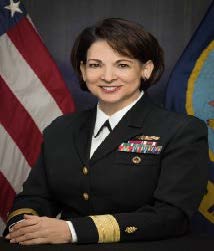 |
RDML Tina Davidson
Director, Navy Nurse Corps
Tina.A.Davidson@navy.mil
Deputy
CAPT Paul Loesche
paul.a.loesche.mil@mail.mil
(703) 681-8926
|
Bureau of Medicine and Surgery
7700 Arlington Blvd
Suite 5136 Room: 1NW452E
Falls Church, VA 22042-5136
703-681-9108
|
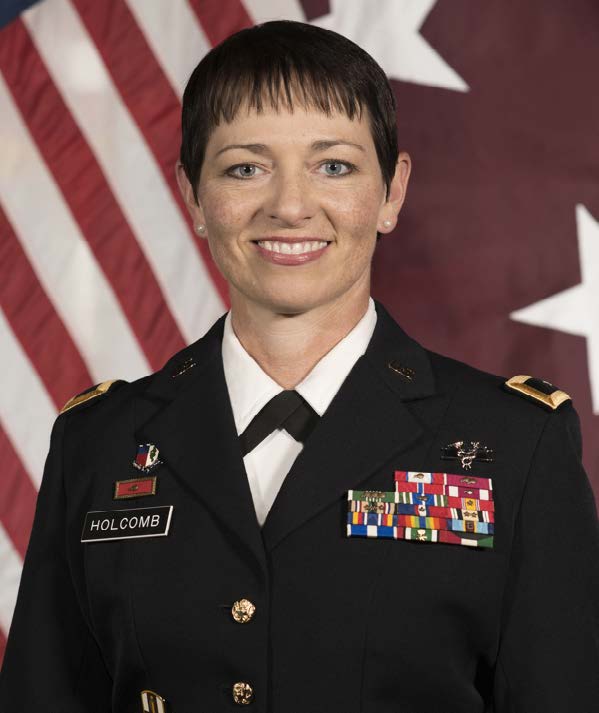 |
MG Barbara R. Holcomb
Chief, Army Nurse Corps
Commanding General, USAMRMC Barbara.R.Holcomb.mil@mail.mil
Deputy
COL Lozay Foots III RN, MS, FACHE
(301) 319-6800
|
Fort Detrick
US Army Medical Research and
Materiel Command (USAMRMC)
Frederick, MD 21702-5000
703-681-3045
|
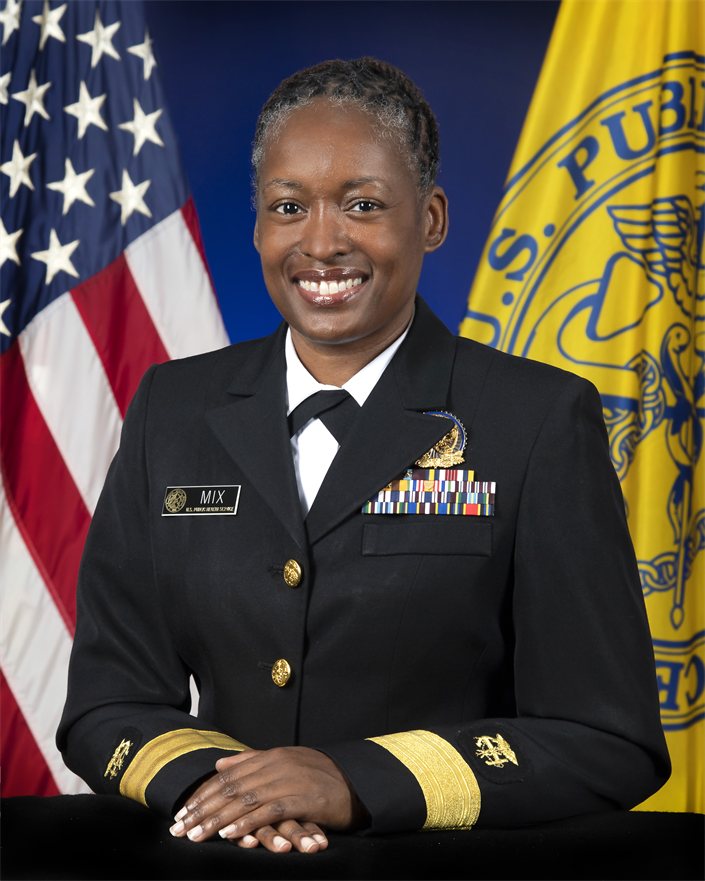 |
RADM Aisha K. Mix
USPHS Chief Nurse Officer
Assistant Surgeon General
Aisha.K.Mix@ice.dhs.gov
Senior Executive Officer
LCDR Chandra Jolley, MSN, BA, RN cjolley@hrsa.gov
(301) 945-9964
|
Department of Homeland Security
U.S. Immigration and Customs Enforcement
1201 Maryland Avenue, S.W., Washington, DC 20024
(202) 430-0367
|
|
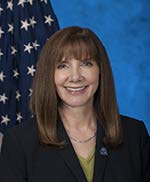
|
Mrs. Linda McConnell, RN, MSN, FACHE VHA Chief
Nursing Officer
Linda.Mcconnell@va.gov
Deputy
Alan Bernstein MS, RN
Alan.Bernstein@va.gov
|
Department of Veterans Affairs
810 Vermont Ave NW (10A1)
Washington, DC 20420
202-461-6700 |
 |
Dr. Linda MacIntyre, PhD, RN
Chief Nurse, American Red Cross Linda.MacIntyre@redcross.org
Deputy
Edythe McGoff
(540) 662-6401
|
American Red Cross
431 18th Street, NW
Washington, DC 20006
202-303-8763
|
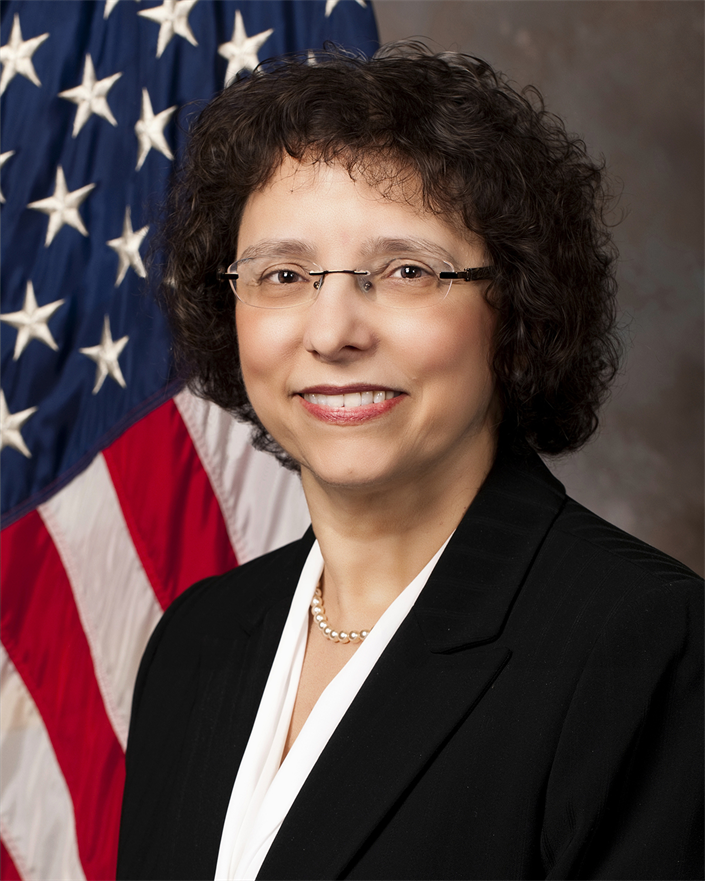 |
Dr. Carol Romano PhD, RN, FAAN
RADM (Ret) USPHS
Dean, Daniel K. Inouye
Graduate School of Nursing
Uniformed Services University of
the Health Sciences
Carol.Romano@usuhs.edu
Deputy
Dr. Diane Seibert PhD, ARNP, FAAN, FAANP Diane.Seibert@usuhs.edu
|
Daniel K. Inouye
Graduate School of Nursing
Uniformed Services University
4301 Jones Bridge Road
Bethesda, MD 20814
301-295-9004
|